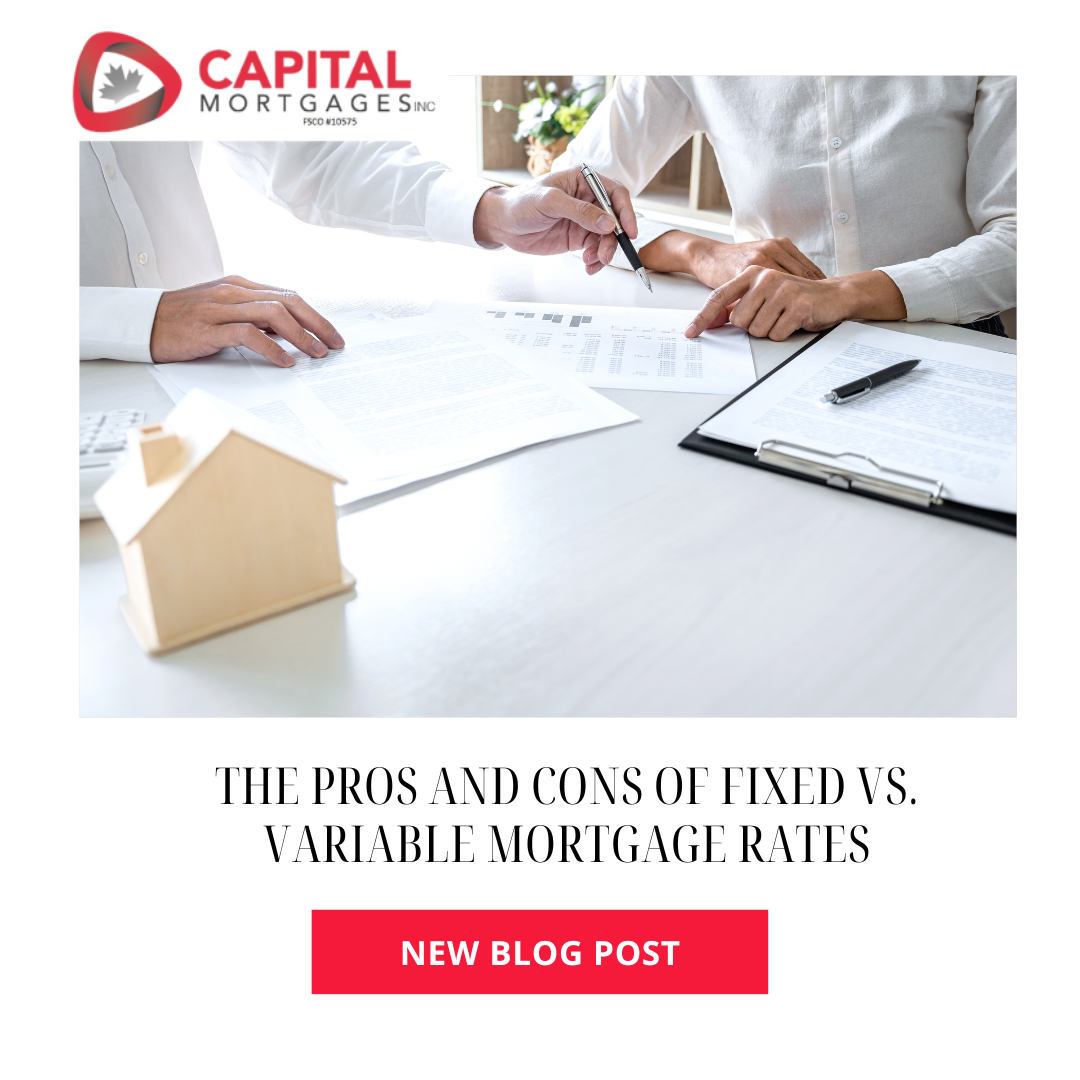When it comes to choosing a mortgage, one of the first decisions you will need to make is whether to go with a fixed-rate mortgage or a variable-rate mortgage. Both types of mortgages have their own unique set of pros and cons, and it’s important to understand the differences in order to make an informed decision. Here is a breakdown of the pros and cons of fixed vs. variable mortgage rates.
Pros and Cons of Fixed vs. Variable Mortgage Rates
Pros of Fixed-Rate Mortgages
As the name suggests, a fixed-rate mortgage has an interest rate that remains fixed over the term of the loan. This means that the borrower will know exactly what their monthly payments will be for the duration of the mortgage. Some of the pros of a fixed-rate mortgage include:
- Predictability: Because the interest rate remains fixed, the borrower knows exactly what their monthly payments will be and can budget accordingly. This can be especially beneficial for those who are on a fixed income or who have a strict budget.
- Stability: A fixed-rate mortgage can provide stability and security, especially in times of economic uncertainty or when interest rates are volatile.
- Potential for lower rates: Fixed-rate mortgages may offer lower interest rates compared to variable-rate mortgages, especially if the borrower is willing to commit to a longer term.
Cons of a fixed-rate mortgage include
- Lack of flexibility: Because the interest rate remains fixed, the borrower is unable to take advantage of lower interest rates if they become available.
- Potential for higher rates: Fixed-rate mortgages may offer higher interest rates compared to variable-rate mortgages, especially if the borrower is willing to commit to a shorter term.
Pros of Variable-Rate Mortgages
A variable-rate mortgage, also known as a floating-rate or adjustable-rate mortgage, has an interest rate that can fluctuate over the term of the loan. The interest rate is typically tied to a benchmark such as the prime rate, and the lender has the right to adjust the rate based on changes in the benchmark. Some of the pros of a variable-rate mortgage include:
- Potential for lower rates: If interest rates go down, the borrower may be able to take advantage of lower monthly payments with a variable-rate mortgage.
- Flexibility: A variable-rate mortgage may offer more flexibility, as the borrower can choose to switch to a fixed-rate mortgage if interest rates become too volatile.
Cons of Variable-Rate Mortgages
- Lack of predictability: Because the interest rate can fluctuate, the borrower may not know exactly what their monthly payments will be, which can make budgeting more challenging.
- Potential for higher rates: If interest rates go up, the borrower may be faced with higher monthly payments with a variable-rate mortgage.
- Risk of default: A variable-rate mortgage may be more risky, as the borrower could potentially default on their mortgage if the interest rate becomes too high.
It’s important to keep in mind that both fixed-rate and variable-rate mortgages come with their own set of risks and benefits. Choosing the right type of mortgage for your situation will depend on your individual financial needs and goals. If you are unsure which type of mortgage is best for you, consider seeking the advice of a mortgage broker or financial advisor. They can help you compare rates and terms from different lenders and find the mortgage solution that best meets your needs.
What to Choose?
When deciding between a fixed-rate and variable-rate mortgage, it’s important to consider your long-term financial goals and the stability of your income. If you are planning on staying in your home for a long time and have a stable income, a fixed-rate mortgage may be the right choice for you. This is because a fixed-rate mortgage provides predictability and stability, which can be beneficial for those who are on a fixed budget or who have a long-term financial plan.
On the other hand, if you are planning on staying in your home for a shorter period of time or if you have a variable income, a variable-rate mortgage may be a good option. This is because a variable-rate mortgage can offer lower interest rates and more flexibility, which can be beneficial for those who are looking to take advantage of lower rates or who may need to sell their home in the near future.
Conclusion
In conclusion, both fixed-rate and variable-rate mortgages have their own unique set of pros and cons. It’s important to consider your individual financial situation and needs when deciding which type of mortgage is right for you. If you are unsure which type of mortgage is best for you, consider seeking the advice of a mortgage broker or financial advisor. They can help you compare rates and terms from different lenders and find the mortgage solution that best meets your needs.
If you are considering a mortgage and are looking for guidance and support, contact Capital Mortgages today! Our team of experienced mortgage brokers can help you understand the differences between fixed and variable mortgage rates and find the best solution for your needs. Don’t miss out on the opportunity to make informed decisions about your home
We here at Capital Mortgages in Ottawa look forward to assisting you with all your Ottawa mortgage needs. Contact us today by calling us at: 613-228-3888 or email us direct at: info@capitalmortgages.com
You can use these links to APPLY NOW or CONTACT US.
You can also click here.

